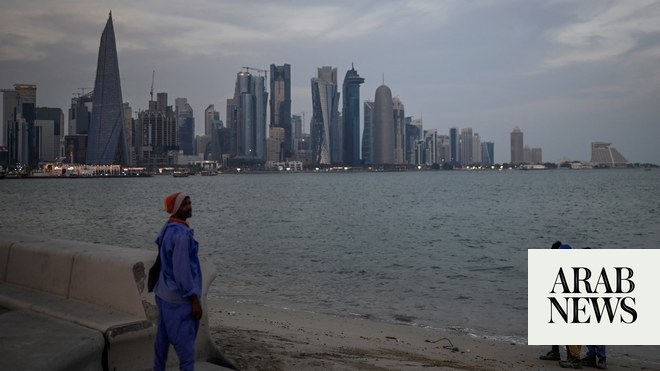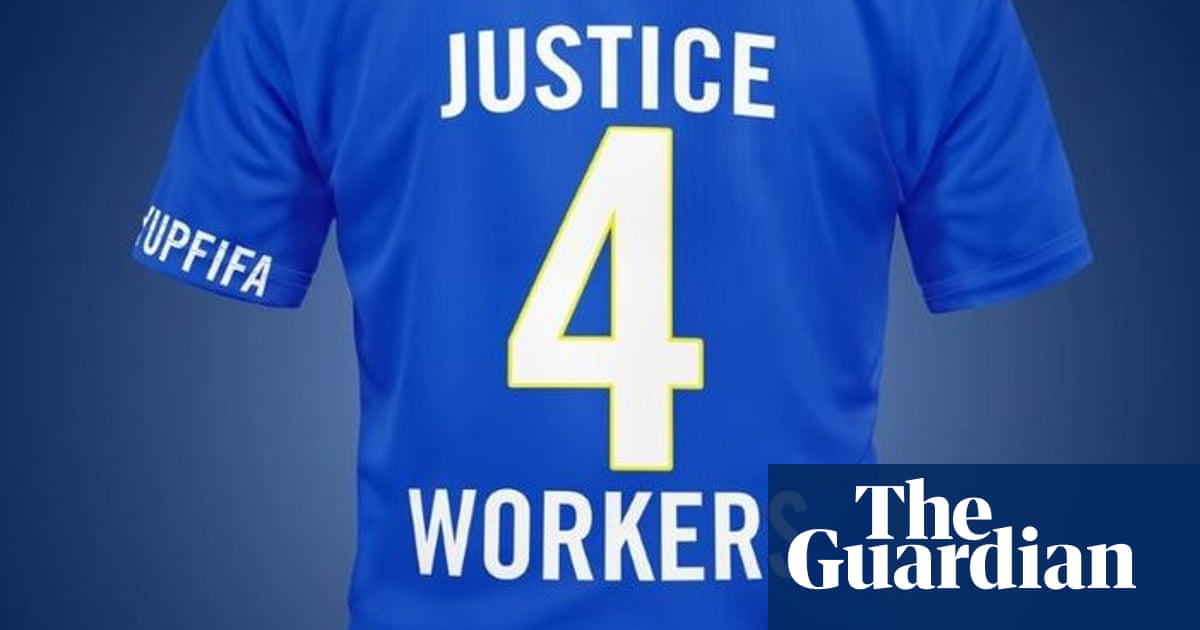
Plans are being developed within football for the creation of a permanent workers’ centre in Qatar that would support the rights of migrant labourers, as the game seeks to leave a positive legacy after the 2022 World Cup.
The international players’ union, Fifpro, in conjunction with the Building and Wood Workers’ International, has led discussions with a number of stakeholders over the centre, where workers would be able to access legal advice and support. On Friday a key World Cup sponsor, Adidas, publicly declared its support for such a plan.
“Employment conditions and human rights must continue to improve when the spotlight on Qatar has dimmed after the World Cup ends,” Fifpro’s general secretary, Jonas Baer-Hoffmann, said. “The centre … has the potential to give migrant workers a permanent place to seek help when necessary, and ensure they are not isolated or marginalised by employers.”
In a statement released to the Guardian, Adidas said it supported the creation of a permanent office for the UN agency International Labour Organization in Qatar. The ILO has a technical cooperation programme with Qatar to ensure compliance with international labour conventions that runs until 2023.
An Adidas spokesperson said: “For the past seven years, we have been engaged with our partners to improve the human rights situation in Qatar. This includes support for the establishment of an independent ILO office as an independent local monitoring body, strengthening the rights of foreign migrants and promoting a national minimum wage for all workers.”
Informal conversations with Qatari representatives are believed to have taken place over a permanent workers’ centre, with Fifa and other World Cup sponsors involved. Discussions are said to be collaborative, with the aim of gaining support from the Qatari regime.
The workers’ centre is one concrete idea as football’s attention turns to next year’s tournament and the legacy it will leave.
Players from a number of international sides have, in the past year, protested in support of greater human rights in Qatar. This week Amnesty International published an assessment of the progress made by the Qatari authorities in securing protections and rights for migrant workers. It found that certain key changes – essentially relating to the freedom for workers to leave jobs and the country – were not being observed consistently, and that workers were still being denied wages. “Progress has stagnated,” the report concluded.
The Qatari supreme committee, responsible for the delivery of the World Cup, has pledged to implement changes to labour laws as part of its “legacy contribution to workers’ rights in Qatar”. It rejected Amnesty’s conclusions, claiming the situation had improved for “hundreds of thousands” of workers. “Qatar has never shied away from acknowledging that its labour system is still a work in progress,” authorities said.
The Amnesty report also called on football associations across the world to use their voice to “ensure that the rights of migrant workers are respected”. There is a growing interest in how the English FA will meet that challenge.
The FA signed a memorandum of understanding with Qatar in 2018, with the then chairman, Greg Clarke, describing it as a partnership dedicated to sharing “knowledge and experience to support the development of football”. It is unclear whether the agreement extends beyond that.
After England qualified for the World Cup Gareth Southgate said he and his team would “take the time to educate ourselves” over Qatar. “If we feel that there are areas that we can highlight and help, then clearly we’ve always tried to do that, and we would do that,” the manager said.
The Guardian understands that the Professional Footballers’ Association will hold focus groups with club captains in each division to discuss the key issues relating to Qatar.
Pressure will surely build on players in England to move from education to action. But the picture is likely to be complicated. The FA’s MOU with Qatar was brokered with the approval of the Conservative government and Southgate noted this week that “we as a nation do a lot of business” with Qatar and that the situation is “hugely complex”.
An FA spokesperson said: “We are in dialogue with Amnesty International and also with Fifa, Uefa, other member associations and the Foreign, Commonwealth and Development Office, and we are working closely with all to ensure that we approach our participation in the upcoming Fifa World Cup in a socially responsible manner.
“From those discussions to date, we believe that there is evidence of substantial progress being made by Qatar in relation to workers’ rights. However we recognise there is still more to be done. Our view remains that change is best achieved by working collaboratively with others so that we can continue to ask the right questions, while always being mindful that we have our own challenges in this country.”









